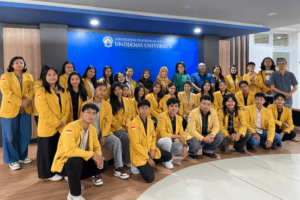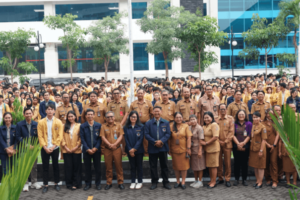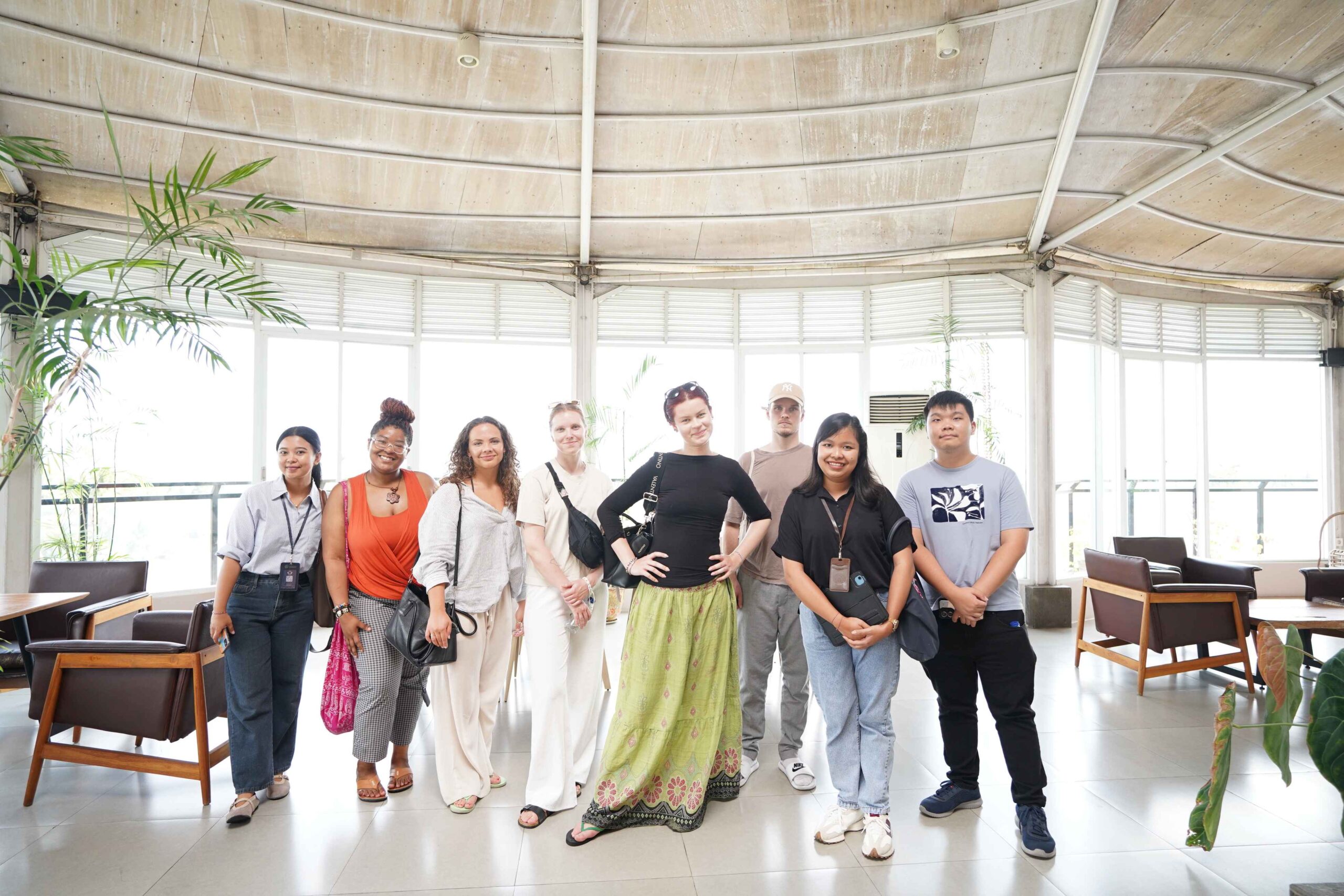
Bali Beyond Borders 2024: Integrating Sustainability in Business Practices – A Day of Learning on Environmental Responsibility
Denpasar, 8th November 2024 – The fifth day of the Bali Beyond Borders 2024 program began with a lesson on Environmental Sustainability and Business in ASEAN, led by Mr. Gede Agung Pradipta. In this session, Mr. Agung provided an in-depth understanding of the importance of integrating sustainability concepts into business practices, particularly in the rapidly developing ASEAN region. The participants were encouraged to explore how sustainability can become a long-term strategy that not only yields economic benefits but also creates positive impacts on society and the environment. The main focus of the session was on how businesses can adapt to more environmentally friendly and socially responsible business models while remaining competitive in the global market.
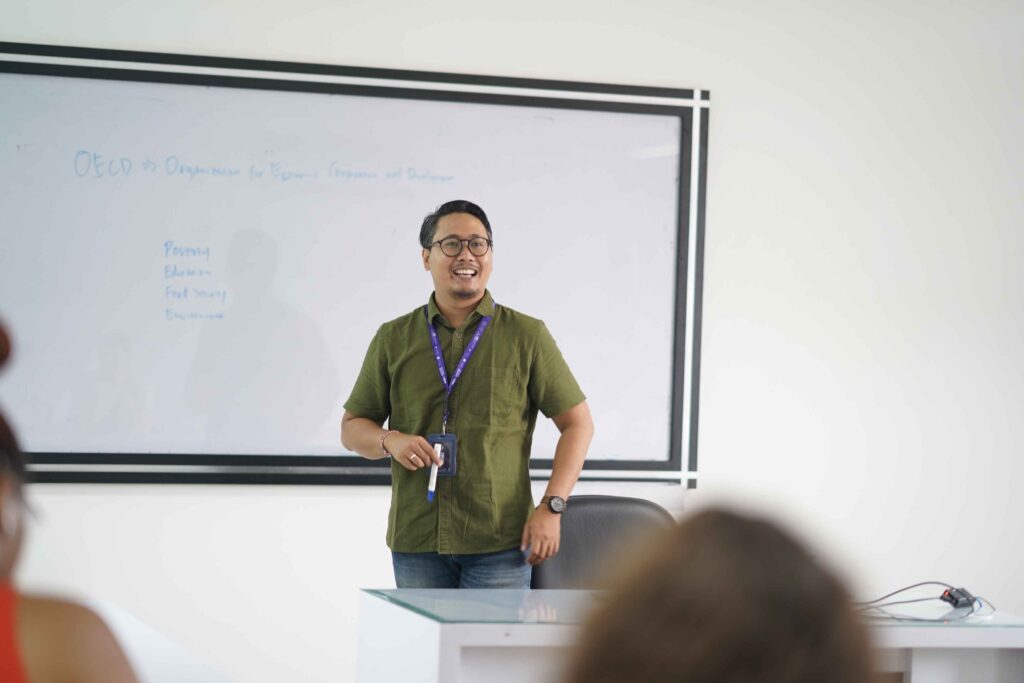
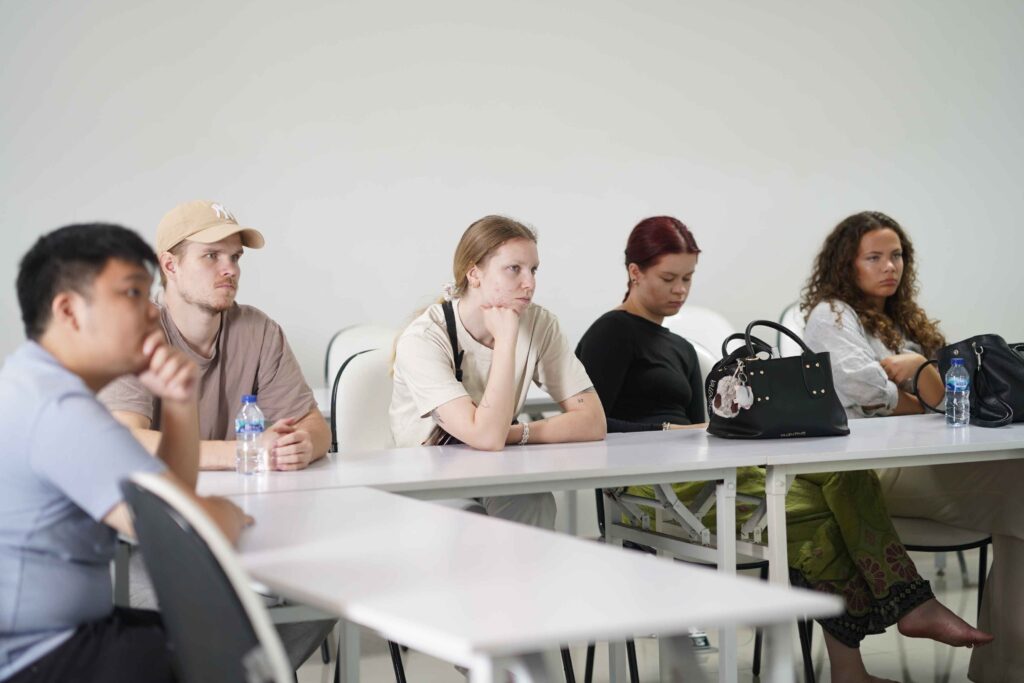
The session also covered Circular Economy, an economic model that emphasizes recycling, waste reduction, and more efficient use of resources. Participants were introduced to how this concept could be applied to businesses in ASEAN, where environmental challenges are becoming increasingly urgent, especially with the rapid urbanization and industrialization in the region. Mr. Agung also discussed ASEAN Sustainability, emphasizing the importance of cooperation between ASEAN member countries to achieve sustainable development goals, particularly in resource conservation and reducing the impacts of climate change.
After the learning session, the group proceeded with a company visit to Kutus-Kutus Organic Oil, a local business that upholds sustainability principles. This visit provided the participants with the opportunity to see firsthand how a local company integrates sustainability practices into its daily operations. At Kutus-Kutus, students not only learned about the production process of herbal oils made from natural Bali ingredients but also about the company’s efforts to maintain environmental sustainability through organic farming methods and eco-friendly waste management. Additionally, the participants were introduced to a business model based on social responsibility, where the company empowers the local Bali community by providing job opportunities and skill training.

This visit offered practical insights into how sustainable businesses not only benefit the environment but can also create long-term economic value. By visiting Kutus-Kutus Organic Oil, participants saw that sustainability in business is not just a theoretical concept but something that can be actively implemented in both small and large businesses while considering social and economic aspects. The experience was invaluable for the students in understanding the close relationship between business, the environment, and society within the context of sustainable development.
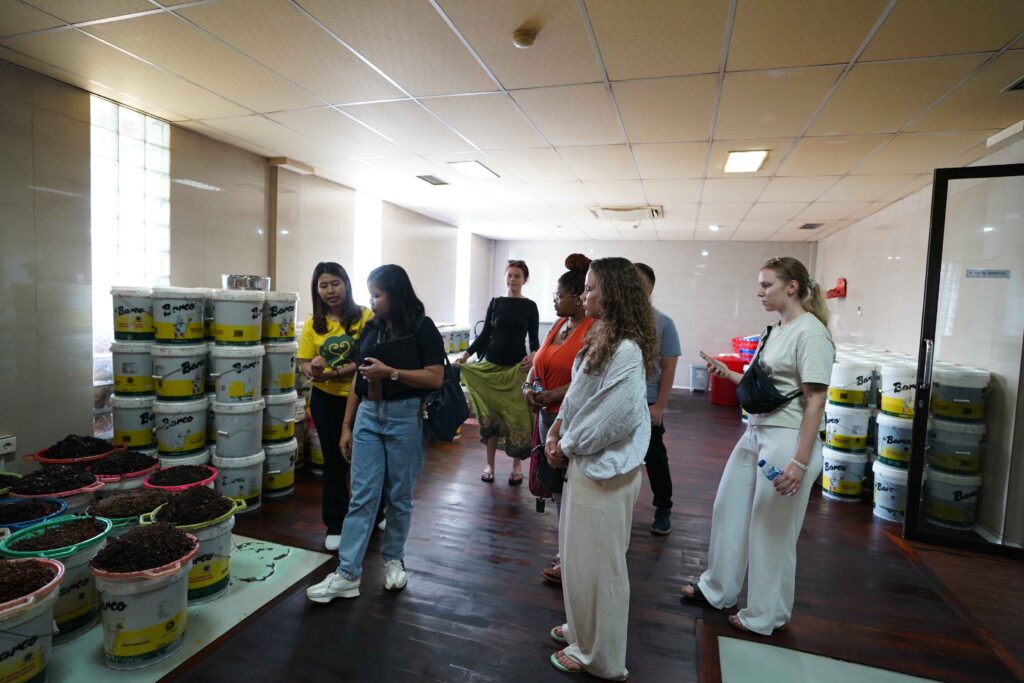
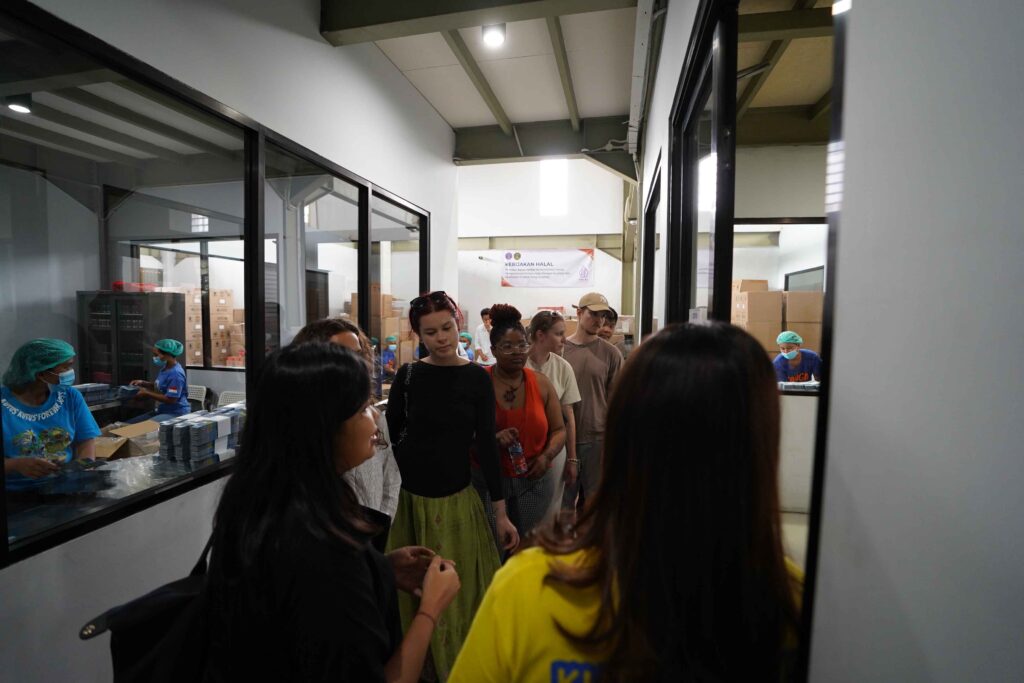
The activities of Day 5 of Bali Beyond Borders 2024 are closely aligned with the achievement of several Sustainable Development Goals (SDGs), particularly SDG 12 (Responsible Consumption and Production) and SDG 13 (Climate Action). Through the understanding of Circular Economy and ASEAN’s commitment to sustainability, participants learned how businesses can reduce their environmental impact, maximize resource use, and minimize waste in their operations. The visit to Kutus-Kutus Organic Oil highlighted the application of sustainability principles in local business practices, reinforcing the importance of integrating sustainability into the business world. Therefore, this program encourages the understanding that sustainability is not only a moral necessity but also a strategy that can create greener and more inclusive economic opportunities for the future.


